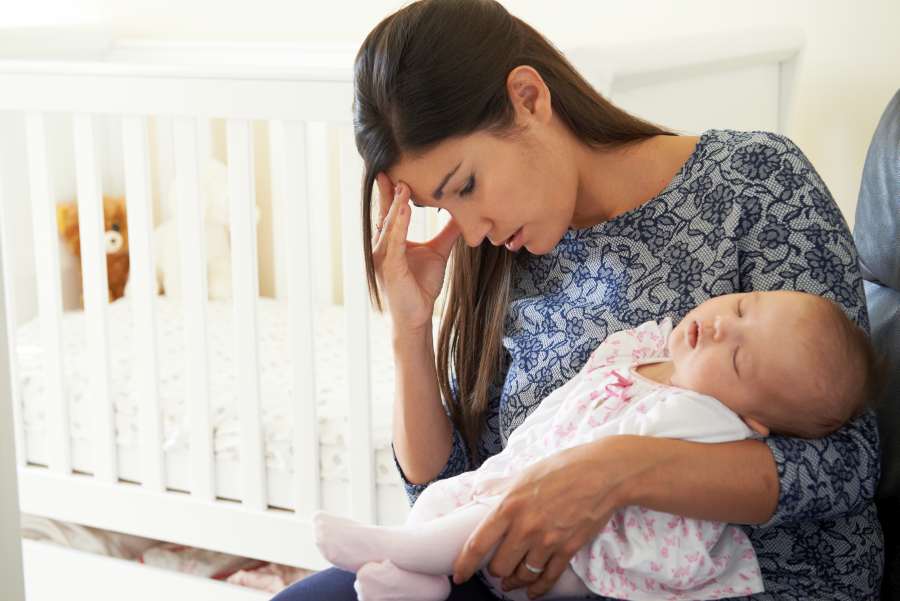Information and statistics on postpartum depression are taken from UpToDate, an evidence based medical database for health professionals. The following article was written by a medial student who volunteers their time at Advice & Aid.
What, exactly, is Postpartum Depression?
Postpartum depression, according to the World Health Organization, is defined as depression occurring up to 6 weeks after delivery. However, according to other sources, it may occur up to as much as one year after delivery. Postpartum depression is different from “the baby blues.” These occur within the first few days after childbirth and quickly resolve within 2 weeks. Postpartum depression is not the same – its symptoms are more sever and typically last longer than the “blues.”
How common is Postpartum Depression?
Postpartum depression occurs in approximately 9% of women, and is usually higher in middle/low income countries. Depression is not always found postpartum, and may also show up during pregnancy. The majority of women find that this depression occurs about one month after delivery. Risk factors include previous diagnosis of depression, high levels of stress after the baby is born, poor social/financial support during pregnancy, young age, intimate partner violence, poor physical health, difficulty breastfeeding, and difficult infant temperament. We don’t know why postpartum depression happens, but many doctors believe it is due to the large amount of hormone changes following delivery.
What are the symptoms of Postpartum Depression?
The symptoms of postpartum depression are important to be able to recognize. They include:
* Trouble sleeping
* Loss of interest in previously enjoyed activities
* Feelings of guilt
* Low energy
* Inability to concentrate
* Changes in appetite
* Changes in motor activity
* Suicidal thoughts or feelings
Untreated, this may resolve on its own, or it may develop into a chronic course of depression. Another symptom is having feelings of wanting to harm the baby, even if you wouldn’t act on this feeling. This disease impairs your function as a mother, can interfere with breastfeeding and mother-child bonding, and disturb other relationships.
What to do if you suspect Postpart Depression
Treatment for postpartum depression includes counseling and antidepressant medications if needed. It is important to tell your health provider or go to the emergency room immediately if you ever feel like you want to end you or your baby’s life. It’s also good to get into the habit of taking time for yourself to assess your emotions and how you are handling taking care of a newborn. If the baby won’t stop crying, it is okay to put the baby down in a safe place (like their crib), walk away and take a few deep breaths. Many mothers feel overwhelmed and stressed with a newborn, likely due to lack of sleep. But if you feel like your stress is more than that or you are having overwhelming feelings of sadness, call your doctor or go to the emergency room. You may also call the National Suicide Depression Hotline at 1-800-273-8255, available 24 hours a day. Postpartum depression is a treatable condition, and you will feel better if you seek help.
For more articles on Pregnancy Education, click here.
If you, or someone you know, is struggling with postpartum depression, it’s important to know that, first, you’re not alone in this. Many women have struggled with this as well. And they came through it.
Also, it’s important to know that you don’t have to suffer alone. Maybe you aren’t comfortable talking with your health care provider . . . But you DO need to talk to someone. Start with us. We have licensed health care providers here that can meet with you. And we completely understand the real struggle that you are facing.
Just click make an appointment at a time that works best for you.
It’s the absolute best thing you can do for yourself right now!


